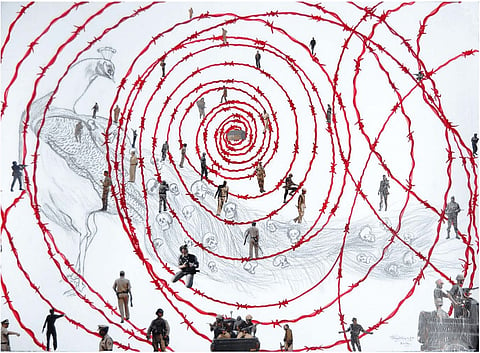Reclaiming the Self
The body of a Kashmir woman, in the foreground and the landscape in the background, both are liberated from the clutches of official cultural production. The works de-fetishise what has been rendered exotic by the colonial gaze and represents a Kashmir woman, not as a spectator or a victim, but a mediator, witness and narrator of people's histories.
How does one begin a fragmented lingering story? Perhaps from the fragment which refuses to erode? Perhaps from a banal declaration, a scream, or a desire which keeps us alive? Let me begin from the cliché then, the one I inherited from my ancestors – Hum Kya Chatey? Azaadi (What do we want? Freedom).
***
Stand upright like Aleph, the first letter of Azaadi. Sing fearlessly. Do not exorcise us out of songs. Our songs are not just our protest songs. These are our birth songs. Our death songs. Our wedding songs. Our funeral songs. Our lullabies. Our mourning. Our celebration. Our screams. Our silence. Our malady. Our panacea. Our unwritten history. Our militant memory.

